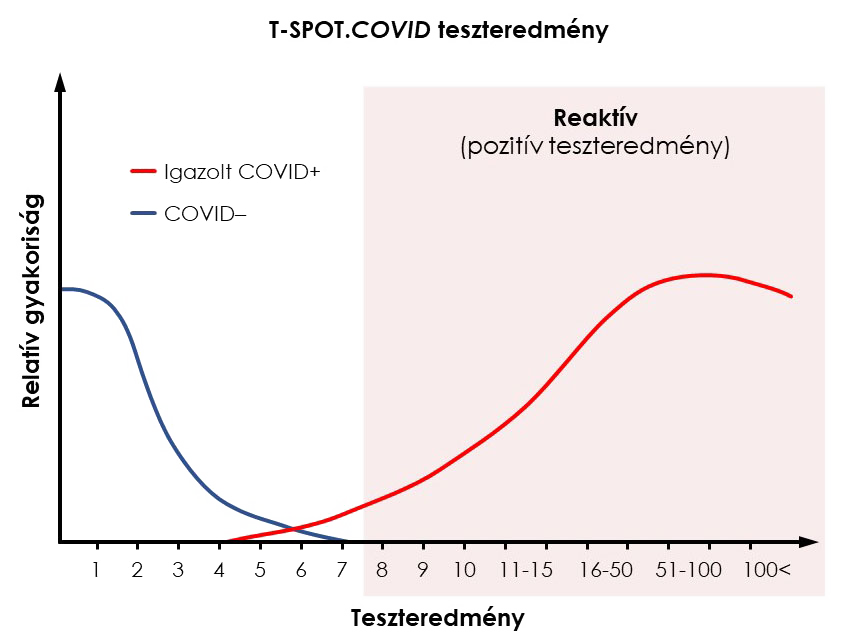Smart Covid Center

Smart Medical Service

Smart Hospital
at Origo Film Studio
Smart Hospital at Origo Film Studio
About us



Dr. Gábor Kovács, MD PHD
Our background in infectology is provided by the Chief Physician of the Central Hospital of Southern Pest National Institute of Haematology and Infectious Diseases.
Do you have questions about the Covid-19 test results?
After receiving your coronavirus laboratory results, you may still have some questions. This is not surprising, as we are dealing with a new, less known pathogen and a new situation in life caused by it. In this scenario, as part of the Smart Hospital project, we would like to give you the opportunity to get personal answers to your questions from one of the most experienced doctors in the country.
Consultation with Dr Gábor Kovács is possible by prior telephone/email appointment.
Covid-19 tests at our test centers
- Fast RT-qPCR thanks to Cepheid GeneExpert.
- Official qPCR results within 2 hours using Point of Care technology.
- The procedure can achieve the most accurate microbiological results possible using a special system.
- In urgent cases it is the most accurate, and the result obtained is considered official compared to antigen tests, even for travelling.
HUF 29.500
- Elisa test (Venous blood)
- Test suitable for the Hungarian immunity certificate
Travel advices by countries
EU COVID passport
Travel with your immunity certificate - Method based on the detection of antibodies against the SARS-CoV-2 virus
- Detection of IgG levels
- GIVES AN EXACT ASSESSMENT OF THE IMMUNE STATUS and the level of protection
HUF 11.000
The T-cell immunity testing
is available
every tuesday morning.
HUF 34.900
T-cell immunity test
When infected with a coronavirus, the immune system defends itself in several ways. In order to neutralise the virus, an antibody (IgG) immune response is required to defeat the virus, but long-term immunity also requires immune cells, such as T-cells.
Our T-cell immunity test allows us to quantitatively assess long-term immunity. This is particularly important to see how much our body “remembers” the virus after vaccination (or after contraction).
The T-Spot.COVIDtest essentially gives an answer to the proportion of active T-cells the coronavirus in a blood sample.
The test consists of two panels: Panel A (Spike protein) and Panel B (nucleocapsid). These are used to separate the immune response to the vaccine and the virus itself in most vaccines.
Interpretation of test results:
Reactive cell count based on Panel A (Spike protein):
- 0-7: negative, i.e. no T-cells can be detected against Spike protein
- 8<: positive, reactive response, i.e. anti-Spike protein T-cells are present
Reactive cell count based on Panel B (nucleocapsid):
- 0-7: negative, i.e. no anti-nucleocapsid T-cells detected
- 8<: positive, reactive response, i.e. anti-nucleocapsid T-cells are present
For both panels, a higher cell count means stronger protection. By performing the test every six months or every year, changes in immunity can be monitored.
How can the two panels be interpreted separately?

- In the case of a positive result on both panels, immunity is due to possible infection.
- The result of Panel B (nucleocapsid):
- positive: you have had the infection and immunity has developed as a result of the infection.
- negative: You are unlikely to have had the infection.
- In the case of Sinopharm vaccination, the immunising effect of the vaccine and the disease cannot be separated. Both Panel A and Panel B are expected to be positive.
Further help in interpreting the result:
96% of patients marked in blue (low infection category) have a test score between 0-4. For patients marked in red (confirmed infected category), 23% have a test result between 8-20 and 59% above 20. This means that, unfortunately, not all patients develop adequate immunity to an infection. This is why we consider post-vaccination T-cell immunity testing to be of utmost importance.
- Elisa test (Venous blood)
- Following different vaccinations, we can accurately determine the degree of protection that a given vaccination
will bring- Pfizer-BioNTech
- Moderna
- AstraZeneca
- Sputnik V
- Sinopharm
- Janssen
- GIVES AN EXACT ASSESSMENT OF THE IMMUNE STATUS and the level of protection
HUF 16.900
- Rapid test based on direct virus detection
- Compared to rapid serological tests, it shows a much more accurate result within a few hours
- First available with us as part of a testing protocol
- Recommended for pre- and post-screening
- Recommended in combination with PCR test
- Also known as laboratory test
- The test is carried out using a sample from the throat
- The most advanced technology
- Microbiological process
- The sample is analysed in a microbiology laboratory
- High accuracy iCHROMA fluorescence antigen test
- Compared to the antigen test, it gives a much more accurate result
- In contrast to the antigen test, it detects infections even in asymptomatic carriers that the antigen cannot yet detect.
Covid-19 testing without an appointment
DRIVE-IN TESTING
- Address: MOM Sport - Parking lot in Jagelló út
- Opening hours: Monday-Friday: 7.00-17.00
Covid-19 testing at your home
HUF 15.000
Outside the administrative area
of Budapest
HUF 150/km
HUF 20.000
Outside the administrative area
of Budapest
HUF 150/km
HUF 19.500
(for Hungarian immunity card)
HUF 11.000
HUF 15.000
HUF 5.000
occasion/person
HUF 10.000
occasion/person
within a 15 km radius of Miskolc
HUF 14.000
occasion/person
Beyond a 15 km radius of Miskolc
HUF 19.500
(for Hungarian immunity card)
HUF 11.000
HUF 15.000
HUF 5.000
occasion/person
HUF 10.000
occasion/person
within a 15 km radius of Eger
HUF 14.000
occasion/person
Beyond a 15 km radius of Eger
HUF 19.500
(for Hungarian immunity card)
HUF 11.000
HUF 15.000
HUF 5.000
occasion/person
HUF 10.000
occasion/person
within a 15 km radius of Debrecen
HUF 14.000
occasion/person
Beyond a 15 km radius of Debrecen
HUF 19.500
(for Hungarian immunity card)
HUF 11.000
HUF 15.000
HUF 5.000
occasion/person
HUF 10.000
occasion/person
within a 15 km radius
of Nyíregyháza
HUF 14.000
occasion/person
Beyond a 15 km radius
of Nyíregyháza
HUF 19.500
(for Hungarian immunity card)
HUF 11.000
HUF 15.000
Book an appointment for call-out testing
Frequently Asked Questions
What are coronaviruses?
They are named after their surface projections, which can be seen under the electron microscope and resemble a crown. Coronavirus strains are found mainly in animals, but some can also infect humans. Coronaviruses, known as pathogens since the 1960s, can spread both from animal to human and from human to human.
What do we need to know about this new type of coronavirus?
The new coronavirus (SARS-CoV-2) was identified in China in late 2019. Initially named 2019-nCoV (new coronavirus), it was renamed SARS-CoV-2 at the suggestion of the World Health Organization (WHO), based on its relationship to the former Severe Acute Respiratory Syndrome (SARS-CoV). The disease it causes is called COVID-19 (COVID: coronavirus disease 2019).
What are the symptoms of the new coronavirus disease?
The disease, caused by the new type of coronavirus, most often presents with mild symptoms, including fever, cough, shortness of breath, muscle aches and tiredness. Less commonly, a severe form of the disease may develop, resulting in pneumonia, acute respiratory failure, or even sepsis (blood poisoning), circulatory or multi-organ failure. Patients with a chronic underlying condition (hypertension, cardiovascular disease, diabetes, liver disease, respiratory disease, cancer) are more likely to develop a serious or life-threatening condition.
How does the new coronavirus spread?
The virus is most commonly spread by droplet infection: it is released into the environment by coughing, sneezing, exhaling and then onto another person nearby. Touching infected surfaces and objects can transfer the virus to the hands, and then it can enter the body by touching the face, mouth or nose. It is not yet known exactly how long the virus remains infectious on surfaces, but simple disinfectants can kill it.
How can the new coronavirus disease be cured?
There is currently no treatment or medicine. In mild cases, the aim is to alleviate symptoms, in severe cases, treatments to support the immune system, respiration and circulation are used (e.g. oxygen therapy, fluid balance, drugs previously developed against other viruses, respiratory support if needed).
What do I need to know about the Elisa test?
The Elisa test is a laboratory serological test that shows whether the body is producing antibodies against the virus.
How is the sample taken?
Blood is drawn aseptically from your vein using a blood collection method.
What should I be aware of before the test?
There are no special rules to follow before the test.
How and when will I get my laboratory result?
To ensure maximum protection of your personal data, we will send you the test result in compliance with the strictest GDPR provisions. Within 36 hours of completing the test, we will send the result to the email address you provided. For our patients with Hungarian health insurance, the result is also available in EESZT system.
How do I interpret the test result?
The presence of IgG antibodies allows the detection of previously infected patients who have recovered from the disease and are likely to have become immune to it. It can also identify people who have been asymptomatic and are likely to have developed immunity.
no immunity: X < 0.9
very weak protection: 0,9 </= X < 1,1
weak protection: 1,1 </= X < 4
medium protection: 4 </= X < 8
strong protection: 8 </= X <
12
very strong protection: 12 </= X vagy NoCalc
Negative result: below 0.9.
There are several reasons for it:
You have not been infected or have had the disease for more than six months.
You have been infected, but the infection is still in a latency period when the antibodies being tested are not yet produced.
You are infected but in an early stage of infection when IgM and IgG antibodies are not yet detectable.
Positive result: above 1.1. The person has had the disease and has developed some immunity.
Threshold: between 0.9 and 1.1. In this case, it is recommended to perform a new test.
The Elisa test is worth performing in combination with PCR testing, as a negative PCR result and a positive serological result clearly indicate the presence of infection – and disease.
A positive result confirms that antibodies against the coronavirus are detectable in the body, so the result can be used to apply for a certificate of immunity under Government Decree 60/2021 (12.02.2021.).
What do you need to know about the test?
Following different vaccinations, our method of measurement can be used to accurately determine the degree of immunity that a given vaccination confers. This allows our laboratory to test not only the pathogen-induced immune response, but also the immune response following vaccination and its effectiveness. So, if the patient specifies which vaccine they have received, we can use this information to give a much more accurate indication of the level of immune response.
How is the sample taken?
Blood is drawn aseptically from your vein using a blood collection method.
What should I be aware of before the test?
There are no special rules to follow before the test.
How and when will I get my laboratory result?
To ensure maximum protection of your personal data, we will send you the test result in compliance with the strictest GDPR provisions. Within 48-72 hours of completing the test, we will send the result to the email address you provided. For our patients with Hungarian health insurance, the result is also available in EESZT system.
What do I need to know about the antigen test?
A rapid test that detects the presence of viral protein within 20 minutes if at least 4 but no more than 14 days have elapsed since the encounter with the suspected source of infection and have had symptoms characteristic of Covid-19 for at least 4 days.
How is the sample taken?
In an extremely quick process, a sample is taken from the patient’s nasopharynx using a swab.
What should I be aware of before the test?
Please do not eat, drink, smoke or chew gum before sampling. It is not advisable to brush your teeth, rinse your mouth, use sweets or any other mouth freshener as this will affect the sampling and we cannot guarantee the reliability of the test.
How and when will I get my laboratory result?
To ensure maximum protection of your personal data, we will send you the test result in compliance with the strictest GDPR provisions. Once the test has been completed, we will send the result to the email address you provided within 20 minutes. For our patients with Hungarian health insurance, the result is also available in EESZT system.
The rapid antigen test cannot be used as a substitute for PCR tests requested by the authorities (e.g. travelling abroad, ending quarantine).
If the rapid antigen test shows a positive result, we are obliged to notify the epidemiological authority.
What do I need to know about the PCR test?
The PCR test is a polymerase chain reaction test that detects the RNA of the virus. It is the most specific and sensitive test for confirming the presence of the virus, as early as 2-4 days after infection.
How is the sample taken?
In an extremely quick process, a sample is taken from the patient’s oropharynx using a swab.
What should I be aware of before the test?
If you are experiencing symptoms, please do not visit us in person. Please do not eat, drink, smoke or chew gum for 2-4 hours before sampling. It is not advisable to brush your teeth, rinse your mouth, use sweets or any other mouth freshener as this will affect the sampling and we cannot guarantee the reliability of the test.
How and when will I get my laboratory result?
To ensure maximum protection of your personal data, we will send you the test result in compliance with the strictest GDPR provisions. Within 24 hours of completing the test, we will send the result to the email address you provided. For our patients with Hungarian health insurance, the result is also available in EESZT system.
Today, an immunity certificate is essential to access a wide range of services. Today, an immunity certificate is essential to access a wide range of services. In addition, Professor Dr Ferenc Jakab said it was essential to know the level of antibodies in your body: “Everyone is rightly interested to know whether they have developed the right immunity after vaccination. This is an understandable social need, but there are also important scientific lessons to be drawn from the results for the future as part of the monitoring of the global vaccination programme.” – LINK
The Government Decree 60/2021 (12.02.2021.) on the proof of immunity against the coronavirus distinguishes between two ways of obtaining an immunity certificate.
a) the recovery from COVID-19 disease (hereinafter referred to as ‘infection’) within the timeframe laid down in this Regulation; or
b) * vaccination with COVID-19 vaccine authorised in the European Union or in Hungary and used for vaccination of the general population in the territory of Hungary (hereinafter referred to as vaccination)
…
(4) If no positive result of a rapid antigenic test or molecular biological test for the detection of coronavirus is recorded in the EESZT for the person concerned, however, the person concerned proves the presence of antibodies against the coronavirus in his/her body by means of a positive test carried out in a laboratory by a health care provider operating in Hungary and complying with the health professional rules, the date of validity under paragraph 1(f) shall be the same day of the fourth month following the date of the test showing the presence of the antibody, or, if there is no such day in the month, the last day of the month.
…
The ELISA test available at the Smart Covid Center is fully accepted by the Hungarian Authority, so you have the opportunity to get your immunity certificate.
The detailed legislation is available at the following link: https://net.jogtar.hu/jogszabaly?docid=a2100060.kor
Following our ELISA test proving your immunity, you can apply for an immunity certificate by following the link below:
https://www.magyarorszag.hu/szuf_fooldal#ugyleiras,a45a3efe-7fea-417f-8eef-92999d05fe47%2Cutolag_elvegzett_koronavirus_elleni_ellenanyag-vizsgalaton_alapulo_vedettsegi_igazolvany_kerelme__potlasa__csereje
According to the Government Decree 194/2021 (26.04.2021), the following services cannot be used without an immunity card:
- indoor premises of restaurants for consumption,
- on-site services in hotels,
- theatres, cinemas, swimming pools, gyms and fitness centres,
- cultural and sporting events.
In order to ensure that your details are correctly included in the digital EU Covid card, please make sure you check your medical documents in the Electronic Health Service Space (EESZT-Elektronikus Egészségügyi Szolgáltatási Tér) (available after logging in Ügyfélkapu) before you travel.
If you find that your health results and data are not correctly recorded in the EESZT, this may be due to the absence of a national insurance number (or incorrect social security number) on the test result. Please contact us at support@tritonlab.hu to amend or complete your details.
Digital EU Covid certificate Re-open EU coverage









